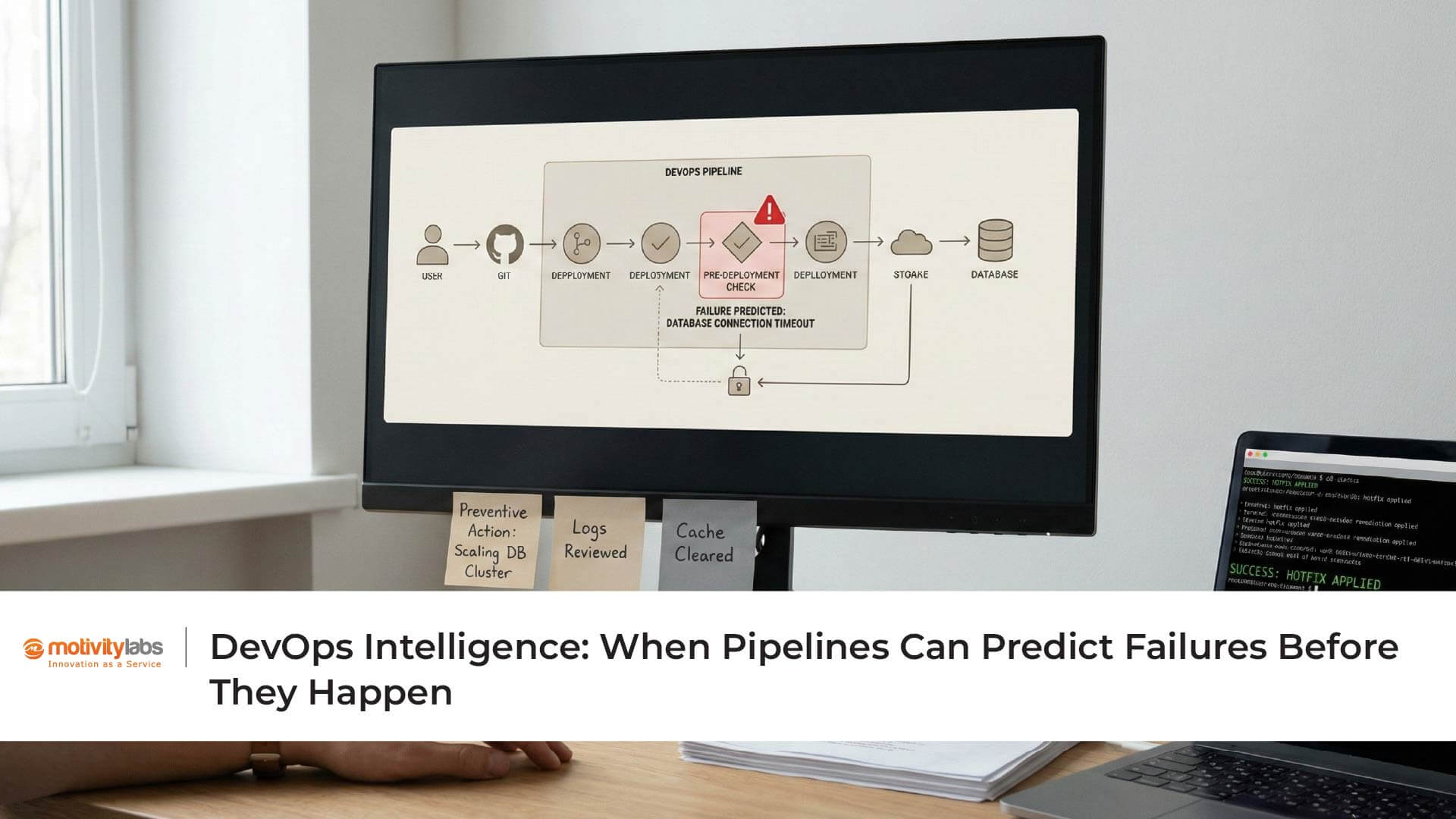The world of software development keeps moving fast. DevOps is no longer a buzzword. It is a proven approach that drives faster releases, smoother collaboration, and stronger performance. In 2025, the DevOps landscape is sharper than ever, shaped by automation, cloud-native applications, and AI-powered insights.
But here is the real challenge. There are hundreds of tools claiming to be the next big thing in DevOps. The truth is that not every tool fits every team. You need solutions that align with your goals, your scale, and your speed.
This blog breaks down the top DevOps tools making headlines in 2025. These tools are not just trendy. They are changing the way teams build, test, and deploy.
Let us dive into what matters most.
1. GitHub Actions: The Go-To for CI/CD
GitHub Actions has matured into a dominant CI/CD platform. It integrates smoothly with GitHub repositories and enables developers to automate tasks ranging from code linting to deployment pipelines.
Why it stands out in 2025:
- Native GitHub integration reduces tool fatigue.
- Marketplace offers thousands of pre-built actions.
- Matrix builds and parallel jobs are uncomplicated to configure.
In a world where speed is currency, GitHub Actions makes automation feel less like a chore and more like a competitive edge.
2. Terraform: Infrastructure as Code, Evolved
HashiCorp’s Terraform continues to dominate infrastructure provisioning. In 2025, its support for multi-cloud and its ever-growing provider ecosystem make it essential for teams embracing cloud agility.
Why is it still winning?
- Platform-agnostic with AWS, Azure, Google Cloud, and more.
- Enhanced state management and collaboration with Terraform Cloud.
- New policy-as-code features help organizations stay compliant.
DevOps is not just about deployment. It is about defining everything as code. Terraform gets that right.
3. Kubernetes: The Orchestrator That Keeps Growing
Even after years in the spotlight, Kubernetes remains the backbone of containerized environments. In 2025, the focus is no longer on learning Kubernetes. It is about managing it effectively.
Why it remains essential:
- Auto-scaling is more intelligent with predictive models.
- Kubernetes-native security tools are more mature.
- Simplified Helm charts and GitOps integrations improve usability.
If your team builds microservices, then Kubernetes is not optional. It is foundational.
4. Argo CD: GitOps Done Right
GitOps is more than a trend. It is now a standard practice, and Argo CD is the tool leading that revolution. By syncing your Git repositories with your Kubernetes clusters, Argo CD keeps your deployments declarative and consistent.
Why it matters in 2025:
- Visual dashboards improve transparency.
- Rollbacks and history tracking reduce risk.
- Multi-cluster support is smoother than ever.
The Git repository becomes your single source of truth, and Argo CD ensures your clusters follow it faithfully.
5. Datadog: Observability Without the Overload
Monitoring is no longer about collecting logs. It is about turning data into action. Datadog brings full-stack observability with dashboards that make sense.
What makes it shine:
- Unified APM, logs, metrics, and traces.
- AI-driven anomaly detection alerts you before things break.
- Deep integrations with cloud platforms, Kubernetes, and serverless apps.
In 2025, DevOps is not complete without observability. Datadog helps you see clearly and act quickly.
6. Jenkins: Still Holding Its Ground
Some may call Jenkins a legacy. But it is far from obsolete. With its broad plugin ecosystem and unmatched customization, Jenkins remains a favorite for large, complex workflows.
What keeps it alive:
- Jenkins X brings cloud-native capabilities.
- Improved UX and scalable pipeline-as-code options.
- Flexible CI/CD tools exist.
If your pipeline demands deep customization, Jenkins continues to deliver.
7. Ansible: Automation Made Simple
Configuration management is crucial for consistency. Ansible leads the way with its agentless architecture and human-readable YAML syntax.
Why DevOps teams still love it:
- Powerful modules for cloud, databases, and networks.
- Ideal for provisioning, patching, and compliance tasks.
- Integrates smoothly with Terraform and CI/CD pipelines.
It brings sanity to automation, especially when simplicity is key.
8. Docker: The Container King
Docker is still the cornerstone of containerization. It simplifies the process of packaging and distributing applications across different environments.
Why is it still relevant?
- Docker Desktop now supports better resource isolation.
- Integration with Kubernetes and CI tools is seamless.
- Slimmed-down Docker images help boost security.
Even in a Kubernetes-first world, Docker remains your starting point.
9. CircleCI: Speed at Scale
If you are looking for blazing-fast CI/CD, CircleCI continues to impress. With powerful caching, parallelism, and customizable workflows, it is built for speed.
Why developers are choosing it in 2025:
- Excellent support for Docker and container builds.
- Easy integration with GitHub and Bitbucket.
- Customizable resource classes for efficient scaling.
Time is money, and CircleCI helps you save both.
10. Puppet: Policy-Driven Automation
Puppet may not be commonly used by every developer, but it remains a preferred choice in regulated environments. It provides enterprise-grade automation and compliance features.
Where it thrives:
- Infrastructure auditing with detailed reporting.
- Policy as code ensures that systems stay desired.
- Integrations with ServiceNow and cloud platforms.
For teams that prioritize governance and control, Puppet offers peace of mind.
Trends Driving DevOps Tool Adoption in 2025
As we move further, the DevOps landscape continues to evolve rapidly. New trends are shaping how organizations approach their software development and deployment processes. These trends influence the tools that rise to prominence and highlight the changing needs and priorities of development teams worldwide.
Before wrapping up, let us explore what is fueling the rise of these tools:
Cloud-Native Everything: As businesses migrate to cloud-first strategies, tools that support multi-cloud and microservices are becoming essential.
Security as a Priority: DevSecOps is no longer optional. Tools that integrate security into the pipeline are getting more attention.
AI and Automation: From test automation to intelligent monitoring, AI-driven features are shaping the next wave of DevOps.
Developer-First Experiences: The best tools offer better UX, less configuration, and more results.
How to Choose the Right DevOps Tools
Every organization is different. What works for one may not work for another. Here are a few questions to guide your decision:
- Does the tool integrate well with your current ecosystem?
- Is it scalable to match your future goals?
- Can your team adopt it without a steep learning curve?
- Is the community or enterprise support vigorous?
Remember, the right tool is the one that makes your team faster, not just flashier.
The Role of Motivity Labs in Your DevOps Journey
As you navigate the crowded landscape of DevOps tools in 2025, having a clear strategy is just as important as choosing the right software. This is where Motivity Labs comes in.
Motivity Labs is not just a tech partner. They are your DevOps enablers. With deep expertise across automation, cloud, and infrastructure, Motivity Labs helps businesses design and implement DevOps solutions tailored to real-world goals. Whether you are modernizing legacy systems or scaling your cloud-native infrastructure, they guide you through tool selection, implementation, and continuous improvement. After all, the value of tools is determined by how they are utilized.
Ready to Transform with DevOps?
The DevOps landscape in 2025 is influential, fast-moving, and full of potential. Whether you are building from scratch or optimizing what you have, the right tools and the right partner can make all the difference.
Talk to Motivity Labs today and take your DevOps transformation from concept to capability.



